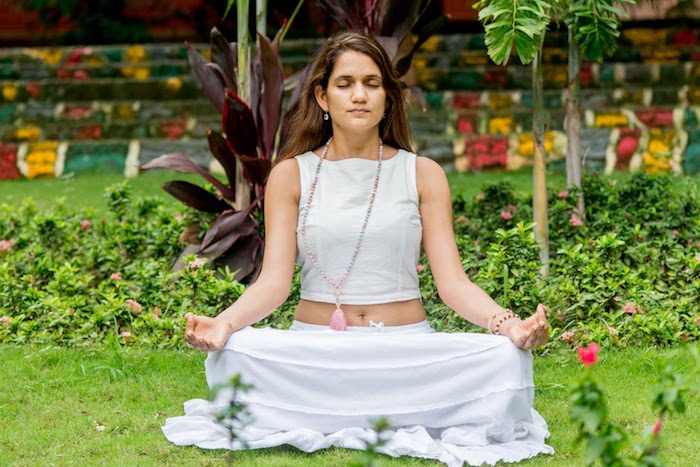Sleep is one of the most important yet overlooked aspects of a healthy lifestyle. A third of our lives are spent sleeping, precious 8 hours of a day are dedicated to it, and missing even a single night’s sleep can slow down our brain and make us forgetful. Miss a few more nights of sleep, and we can start hallucinating! Sleep is crucial for our health, and it deserves as much importance as a good diet and exercise.
Even more so today, as trends show that our sleep quality and the quantum of sleep are steadily decreasing. Therefore, it is essential to know how we can support and maintain our natural sleep cycles for good health and longevity.
In this article, I cover three topics
Want to learn 7 effective, evidence based tricks to start waking up earlier every day, read this article here
Section 1: Why sleep is important?
Here are a few things that can happen due to lack of sleep.
- Poor memory – Sleep is when our memories are organized. If we don’t sleep enough, we are more likely to forget what we learned during the day. Our cognitive output will also be lower.
- Dull Mind – Lack of sleep slows down the problem-solving parts of your brain. This is because we use up the glucose reserves that the brain relies on. This results in reduced attention span, and we take longer to process simple problems.
- No repair – When you’re awake, the body is in a Catabolic state, focussing on breaking down atoms for energy. When you’re asleep, the body goes into repair and recovery; it starts reconstructing and replenishing energy reserves (Anabolic state). For a well-balanced life, both are important. Otherwise, it’s like running a car all day long, every day without enough maintenance or servicing – soon, it’ll breakdown.
- Weight gain – Not getting enough sleep is also connected to obesity. In fact, one study concluded that skipping one night’s sleep is as bad for the body as 6 months on a high-fat diet!
Usually, the interest in sleep perks up, moment weight loss benefits come in. But that’s not where it ends. Many good things happen when we get the right amount of sleep – our immunity improves, injuries heal faster, we stay in a better mood, and we look and feel better. To know more, look up the book Why we sleep by Matthew Walker.
Suffice to say that sleep is a good thing. Now, let’s understand how we can improve our quality of sleep.
Section 2: What disturbs our sleep?
The most common reason for sleeplessness, groggy mornings, fatigue, and the constant struggle to sleep is a disturbed circadian rhythm.
What is Circadian Rhythm?
It is the body’s natural clock that helps you wake up and sleep at the right time. This is mostly governed by two hormones – Melatonin and Cortisol. Both have an adversarial relationship. Melatonin makes you sleepy, and Cortisol keeps you awake.
When the circadian rhythm is working well, your cortisol levels will naturally start rising in the morning to help you wake up. Think of Cortisol like the body’s natural alarm clock, which starts buzzing at the right time every day.
Likewise, your melatonin levels naturally rise in the evening, making you drowsy and ready for bed. Think of Melatonin as your body’s natural sleeping pill. In fact, melatonin supplements are widely used as a sleeping aid and even to cure jet lag.
Disruptions in the Circadian Rhythm
So, as long as both hormones work fine, your sleep should be satisfactory. The problem happens when the circadian rhythm is disturbed – because then even your sleep will be disturbed.
A common disruption is high cortisol levels in the evening – often caused by chronic stress. Think of high Cortisol in the evening, like drinking two cups of coffee at night and then trying to sleep! You will keep tossing and turning, unable to fall asleep.
The second disruption is too much artificial light at night. The body produces Melatonin when there’s darkness, whereas its production stops in light. So, in the natural order of things, you should aim for darkness at night and light in the morning. Sleeping till late with curtains drawn and then staying awake at night, exposing our eyes and skin to artificial light from lamps, mobiles, and computers, contributes to disturbing our body’s natural rhythm.
Section 3: How to sleep better?
Let’s now look at some highly effective tips and tricks to sleep better:
1. Get some sun
Increase exposure to light during the day. And every morning when you wake up, step into natural sunlight. A good time would be between 6 am to 8:30 am. Watch a sunrise, if that’s accessible.
2. Disconnect at night
Reduce exposure to artificial light at night, including TV, laptop, and mobile screens) such that you stop using all screens at least 45-60 mins before bedtime. Use soft and low-lighting in the evenings at home instead of bright white lights.
3. Sleep in a dark room
Blackout curtains can help in getting restful sleep. Our body absorbs light through the eyes as well as the skin. So, even though your eyes may be closed, the light falling on your skin can impact the production of Melatonin.
4. Manage stress
Do something relaxing like massage, gentle yoga stretches, meditation, aroma oil therapy, or listen to soothing music. Anything that helps you relax; will help you cleanse yourself of stress-related chemicals that your body pushes into the bloodstream.
Here’s a short yoga routine that you can practice before bedtime:
5. No Caffeine
The effect of caffeine is most substantial within 60 mins of consumption, but it lasts in your system for hours after that. For best results, avoid caffeine 6 hours before bedtime. So, if you want to sleep at 10, let your last tea or coffee be at 4 pm. Drinking sufficient water will also help decrease the effects of caffeine (it won’t *flush out* the caffeine, but it will help reduce its power).
6. Time those drinks
If you’re going to be drinking alcohol, make sure you stop 2 hours before bedtime and that you chase every glass of alcohol with a glass of water. Small amounts of alcohol can make you sleepy very quickly, but you may find yourself wide awake later in the night. It’s harder to ‘stay asleep’ when there’s alcohol in the body.
7. Exercise regularly
Exercise has a host of benefits, and you can undoubtedly add better quality sleep amongst them. After exercise, your body needs to repair itself; this prompts the brain to induce sleep so it can carry on the repair work undisturbed. Just don’t exercise close to your sleep time because that would have the opposite effect as you’ll be all charged up and refreshed.
8. Set a routine
Nature and our body love consistency and rhythm, so try and go to bed at around the same time every night. Your body will thank you for it.
9. Sacred space
Don’t work where you sleep. Let your bed be a sanctuary you use for rest, rejuvenation, and sleep. This is very actively used in Cognitive Behavior therapy for insomnia as it helps build a strong association between sleep and your bed.
10. Use the Magic Window
Our biology is such that we get the deepest, most restful sleep before midnight. This magic window is from 8 pm to 12 am. So, no matter how many hours you sleep, your sleep will be lighter and not feel as refreshing if you miss the magic window. This is just how we have evolved to be.
“Every hour of sleep before midnight is worth two after midnight.”
– Time Magazine
This may seem unfortunate for those who work late night shifts and must stay awake and night and sleep during the day. Yoga Nidra is a potent yogic practice that can improve the quality of sleep and help counterbalance the lifestyle. Aim for a long Yoga Nidra session of 45-60 mins at least twice a week and shorter Yoga Nidra sessions daily
11. Eat well
Certain foods can help you sleep better. These include Kiwis, red grapes, bananas, and dark chocolate. Tart Cherries, in particular, are considered the best natural source of Melatonin. High fat, high protein, and spicy foods, on the other hand, can make sleep difficult. Eating complex carbs is considered better for good sleep. These include oats and wholemeal bread.
12. Meditate
Meditation stimulates the pineal gland, which secretes the sleep hormone Melatonin. Not only that, but meditation also reduces Cortisol! So, to circle back to the very foundation of a healthy circadian rhythm, meditation helps us balance both these hormones and get a deep restorative sleep.

Meditation has far-reaching benefits, which have been known since antiquity. Science is still only discovering them. So, make meditation a part of your daily routine for complete mind-body transformation.
We are sleeping less and less these days, and our quality of sleep is suffering. This is impacting our physical as well as mental health. The good news is, it only takes some minor tweaks in our lifestyle to reset that circadian rhythm and reclaim our sleep. A good night’s rest, high energy, a sharp mind, and an upbeat mood can all be achieved with a healthy lifestyle and a good sleep. Now that you understand the power of sleep, I hope you unlock it with the tools and tips shared above. On that note, sleep well and sweet dreams!








